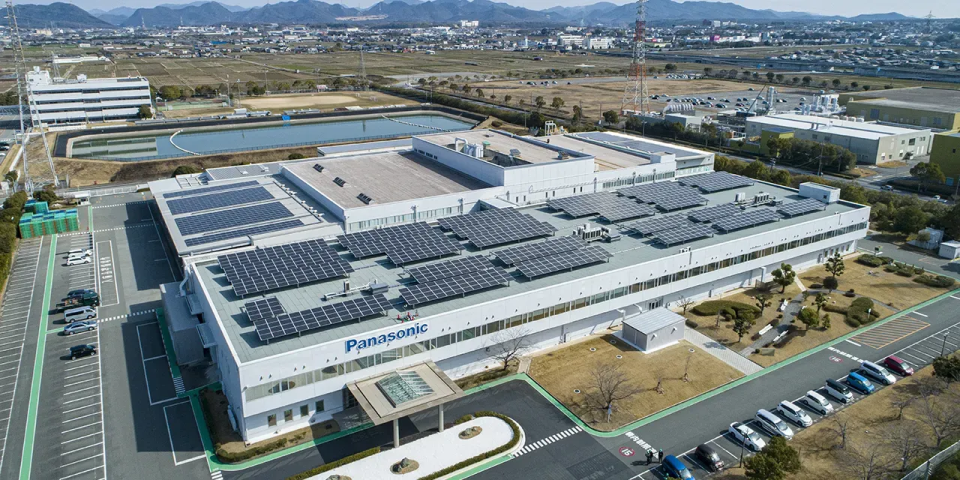What is Climate Change?
Today, Earth is the hottest it has been in 1,400 years. Climate change caused by global warming is having an increasing impact on ecosystems, water resources, crops, and other aspects of life. The main cause of climate change is greenhouse gases (GHG). CO2 (carbon dioxide), which accounts for 70-80% of total GHG, has the greatest impact on global warming. A surge in CO2 levels has accelerated global warming in recent years.
Natural Disasters and the Economic Losses They Cause Are on the Increase
The consequences of climate change are evident in various abnormal weather patterns worldwide, leading to an increase in natural disasters such as heavy rainfall, floods, heatwaves, and droughts. Economic losses due to natural disasters are escalating annually. Beside posing risks to living environments, climate change adversely affects economies.
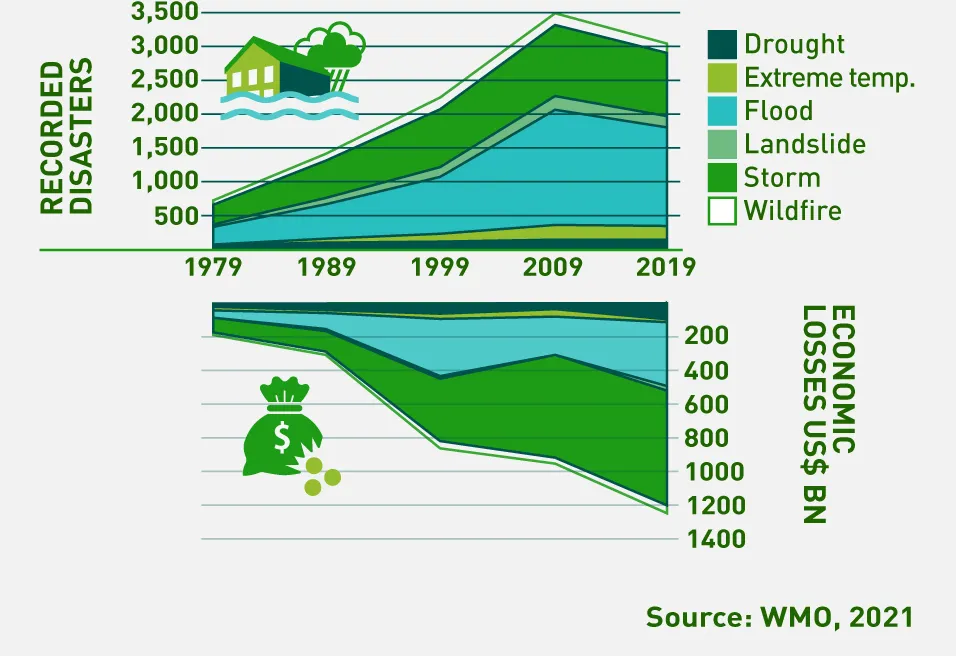
Addressing Global Warming is Now the World's Shared Goal.
As of 2017, the global average temperature had risen by approximately 1ºC on a mid-18th century baseline, with projections indicating a potential increase to 1.5ºC at some point between 2030 and 2052 if the current (2017) trajectory of GHG emissions continue.
To avert this outcome, the international community ratified the Paris Agreement in 2016, aiming to limit the global temperature rise to around 1.5ºC by the end of the 21st century.
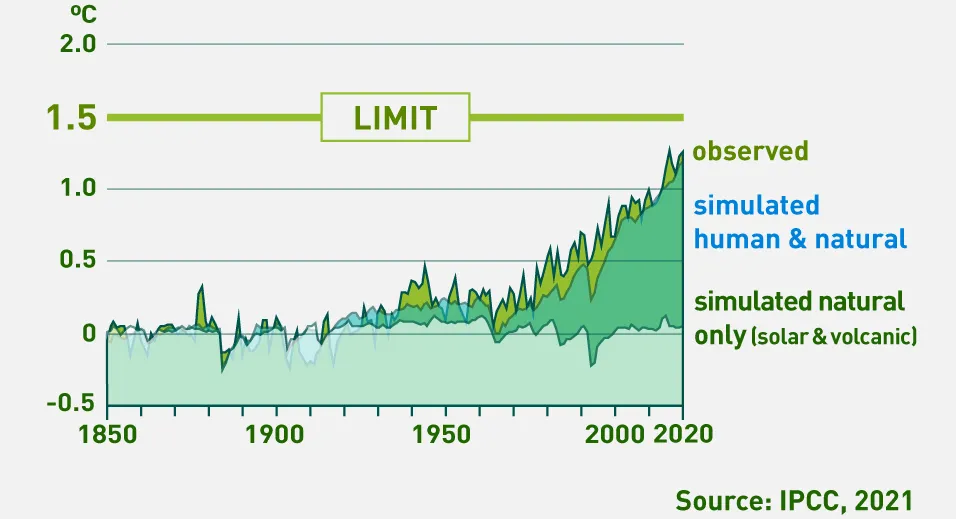
The Fate of the Earth by 2030
The world's carbon budget, meaning the maximum amount of CO2 emissions that could be generated without exceeding the 1.5ºC global limit set at the Paris Agreement, is approximately 500 gigatons. Without additional measures, at the current rate of reduction in CO2 emissions, this budget will be exhausted by 2030, necessitating emergency action.
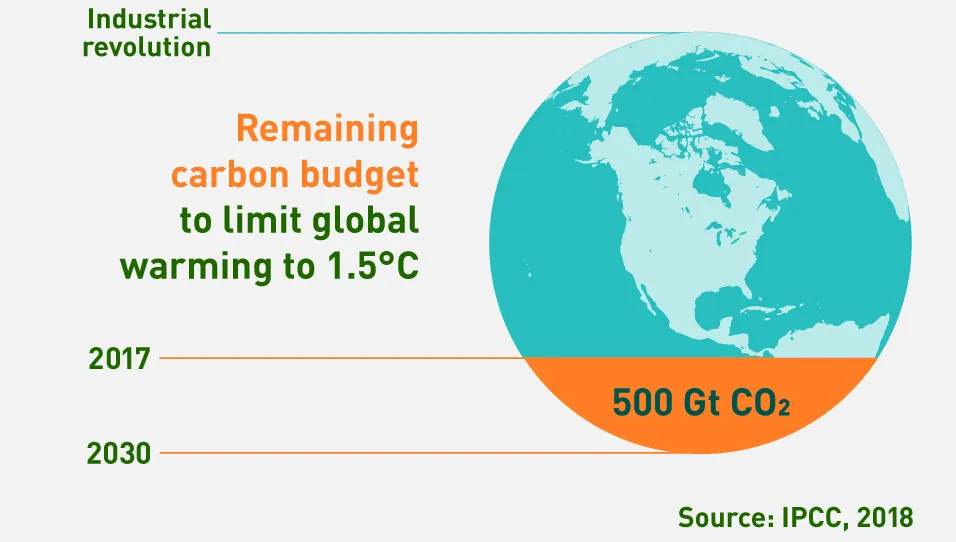
The Global Pursuit of Carbon Neutrality
To address the critical situation regarding climate change, countries and regions worldwide are proactively declaring their commitment to carbon neutrality. Over 150 countries and regions have declared targets to achieve carbon neutrality by 2050, 2060, or 2070. If all these commitments are fulfilled, global CO2 emissions could be reduced by approximately 88%.
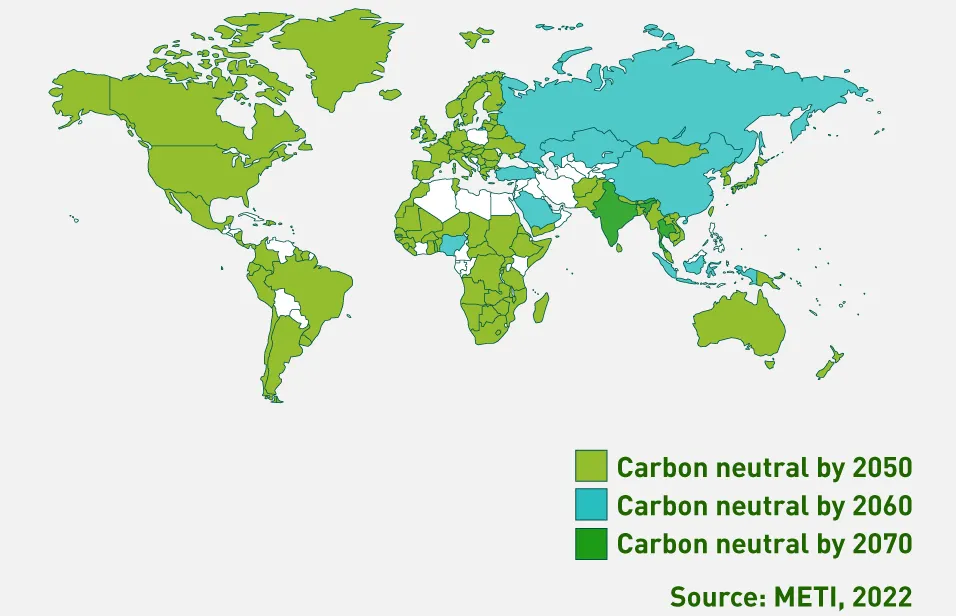
Towards a World Where CO2 Emissions Reduction Has Economic Value
The idea that countries and corporations should bear responsibility for the GHG they emit is gaining mainstream acceptance. Initiatives such as carbon taxes result in higher product prices for entities heavily reliant on fossil fuels in their manufacturing processes. Additionally, mechanisms such as emissions trading systems provide countries and corporations a monetary incentive for emissions reduction efforts.
These systems are helping drive transformative actions by companies towards CO2 reduction and accelerate the transition towards carbon neutrality in society as a whole.
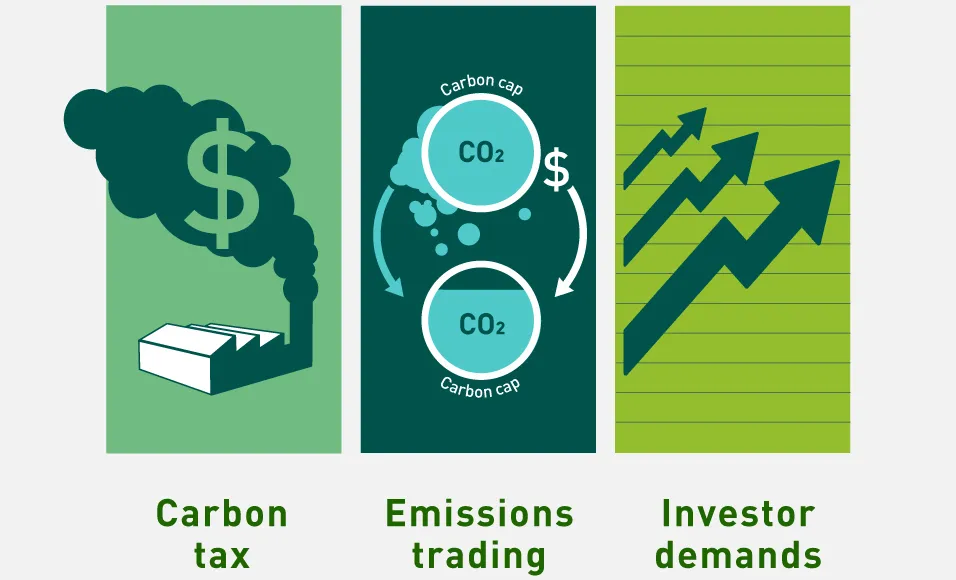
Due to the increase in CO2, Earth is the hottest it has been in 1,400 years, and climate change is accelerating.
CEO Kusumi shares the Panasonic Group's resolve regarding Panasonic GREEN IMPACT.
The Panasonic Group aims to create impact that reduces CO2 emissions by at least 300 million tons by 2050.
Carbon Neutrality
Circular Economy
